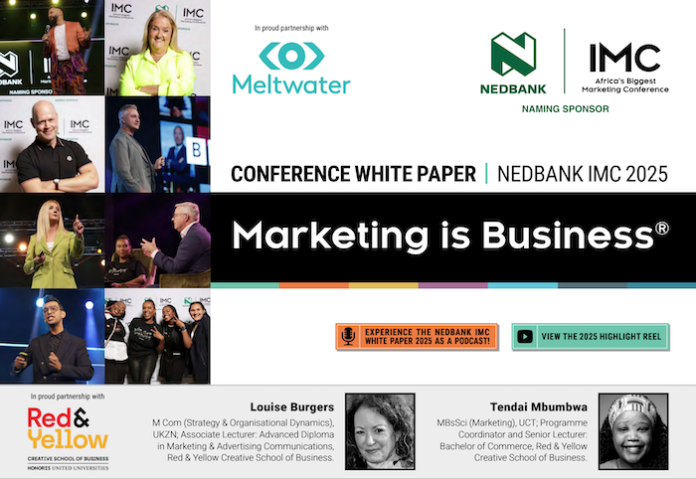For the most part, Black Friday and the festive season peak that follows are retail brands’ time to thrive. But with budgets tightening and tension running high as crowds jostle for deals both online and in store, an unpleasant shopping experience can lead to angry customers, scathing reviews and reputational damage.
In the latest edition of VML’s global The Future Shopper Report, South African shoppers shared what they want from retailers. Here are three trends to note ahead of Black Friday:
Customer Experience That Builds Credibility
Today’s customers have little tolerance for underwhelming customer experience. Sixty-two percent of South Africans surveyed said they won’t shop with retailers, brands or marketplaces that don’t match their expectations of online shopping, while 77% said retailers need to get better at delivering the products, service and experience they want from their online shopping experience. Two thirds of South African respondents feel companies invest more in collecting their data than improving their experience.
Despite widespread claims of customer-centricity, many retailers are still struggling to bridge the experience gap. True customer-centricity is defined by the seamless, intuitive experiences customers actually receive.
Long-term gains: Mapping the customer journey to identify friction points and opportunities for delight, then using real customer feedback to guide improvements. Setting KPIs around customer outputs (e.g. satisfaction and loyalty), rather than internal metrics (such as units sold) and breaking down internal silos so that everyone in the business is working towards the same customer-centric goal.
Quick Wins:
– Transparency around pricing, delivery times, and stock availability: Manage customers’ expectations from the beginning.
– Delivering on promises: If an offer promises next-day delivery, make sure you have the resources to deliver the next day.
– Returns and refunds that are simple and fair.
– Authentic customer reviews.
– Clear and proactive communication around delays, issues or changes.
When customers see that a brand consistently acts in their best interest – even when it’s inconvenient for the business – their trust in that brand grows.
Personalisation That Feels Like Service, Not Stalking
When personalisation saves time, reduces effort, and delivers relevant value, it strengthens loyalty and increases lifetime customer value. But personalisation that doesn’t add value risks coming across as an invasion of privacy. Fifty-four percent of South African respondents feel that basic features (like remembering a customer’s preferences) are still missing from most sites. An equal number believe businesses seem more interested in pushing their own agenda than making customers’ lives easier online.
The problem lies in generic guesswork and thinly disguised upselling that intrudes, frustrates, and erodes trust. Effective personalisation strategies focus on delivering clear, tangible value to the customer.
Long-term gains: Unifying and connecting customer data across channels and using AI-powered CRM systems to create a complete customer profile. Using this insight to trigger personalised content, recommendations, search results and offers.
Quick Wins:
– Saving preferences (such as size) or creating favourite categories to speed up future shopping if your e-commerce platform supports it.
– Personalised promotions based on past shopping behaviour.
– Option to opt in for saving payment and delivery preferences to reduce friction at check-out via autocomplete or ‘save my info’ toggles.
– Post-purchase recommendations for complementary products or services at check-out or in a follow-up mailer.
True personalisation is dynamic, context-aware, and powered by intelligent software that can understand intent in real time.
Omnichannel Offers That Work Like Customers Think
Customers don’t think in terms of ‘online’ or ‘offline’; they expect both to work together, seamlessly. After the online retail boom catalysed by the pandemic, shoppers are rediscovering the value of physical stores. But they still expect the speed, choice, and convenience of digital. Fifty-five percent of South Arican respondents said long lines or wait times would stop them from visiting a physical store. Other deterrents were unhelpful or rude staff (53%), overcrowding (48%), out of stock items (47%) and a dirty or disorganised store (47%).
For brands and retailers, this means rethinking how channels work together, whether that’s through a full omnichannel presence or a more selective ‘optichannel’ strategy that focuses on what works best. Instead of trying to be present on every possible channel, optichannel brands identify and prioritise the most effective channels for their audience, products, and resources.
Long-term gains: Aligning every stage of the customer journey, from inspiration to fulfilment, under a single strategy. Using AI for demand forecasting to manage inventory and reduce delivery times.
Quick Wins:
– Standardise brand messaging and visual identity across channels for consistency: the offer on Instagram should have the same look and feel as the offer in store.
– Merge online convenience with offline immediacy through click-and-collect and curb-side pick-up options.
– Integrate QR codes, mobile payments and app-based loyalty programmes into physical in-store shopping.
– Consistent promotions across channels to avoid price mismatch frustration.
– Train staff on the online offers, so there’s no confusion.
The key is to make the physical store a fulfilment hub, brand theatre, and service centre, not just a point of sale.
VML’s ninth annual Future Shopper Report draws insights from more than 25,000 online shoppers across 16 countries, including South Africa. Download your free copy of the report here.
VML SOUTH AFRICA
https://www.vml.com/south-africa


















